| Umělec magazine 2005/3 >> How Ukrainians Were Looking For Happiness | List of all editions. | ||||||||||||
|
|||||||||||||
How Ukrainians Were Looking For HappinessUmělec magazine 2005/301.03.2005 Alena Boika | Ukraine | en cs de es |
|||||||||||||
|
Not everybody loves revolutions. One person is afraid of them and hates them; someone else hides behind hypocritical clichés. I adore revolutions. It is the time when the overwhelming majority gets to forget any tendency to think about washing machines, albeit briefly. And all those joyful feelings burst forth “We will win” and “Everything is yet to come.”
I was fortunate to be able to go to Kiev during the best days of Ukraine’s orange aspirations. Revolution instantly made Ukraine visible to the rest of the world, and it was painted in orange. There was such an outburst of unity, on Kiev’s Kreshchatik street and Maidan Nezalezhnosti square, that unavoidable happiness seemed right around the corner. Elderly men and women were dancing accompanied by accordions in pedestrian underground walkways; a brand new group R.E.S (Revolutionary and Experimental Space) organized art actions; a homely short man joyfully offered to play the sopelka, a Ukrainian folk instrument, for passers-by. The little man had come all the way from Odessa or Rostov-on-Don to make a revolution. But he very quickly ran short of money, and making revolution on an empty stomach was cold and hard. Then, he was lucky to get a job as a servant to a Georgian who came to Kiev to share the Georgian revolutionary experience. The Georgian shared his experience in the form of pasties with cabbage, which he was baking on the spot in a revolutionaries’ camp. So, the little man baked pasties all day long and was a servant. In the evenings after ten in his spare time he went out of doors and offered to play any song for anyone in exchange for a cigarette. Or even for nothing. Since the Georgian couldn’t stand the sopelka, he was more than delighted to let this little guy occasionally go out and enjoy the revolution along with everyone else. …And they won. But then something completely unexpected came about. All those orange flowers of revolution were transformed into national and historical ideas based upon archaeology and ethnography. It was decided to open a Ukrainian Spirituality Hermitage in the Contemporary Art Museum’s premises. Nikolai Babak was selected as the most deserving artist to represent Ukraine at the Venice Biennale; his project Your Children, Ukraine consisted of old brown photographs and dolls in national costumes. Tripolie culture has begun to edge contemporary art out. This is why it is too soon to bid a farewell to arms. I sincerely hope that the artists who so impressed me with their openness and solidarity uncharacteristic of an art community will not allow their art to become vegetables in a store, and the “raw meat of reality” that had been offered by R.E.S. will continue to be more delicious than these canned cultural and historical realities.
01.03.2005
Recommended articles
|
|||||||||||||

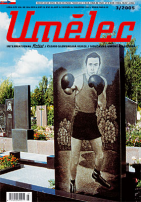


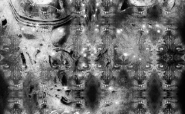
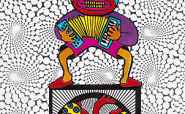
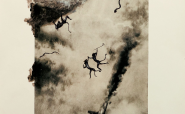
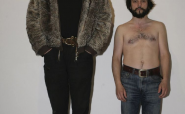
Comments
There are currently no comments.Add new comment